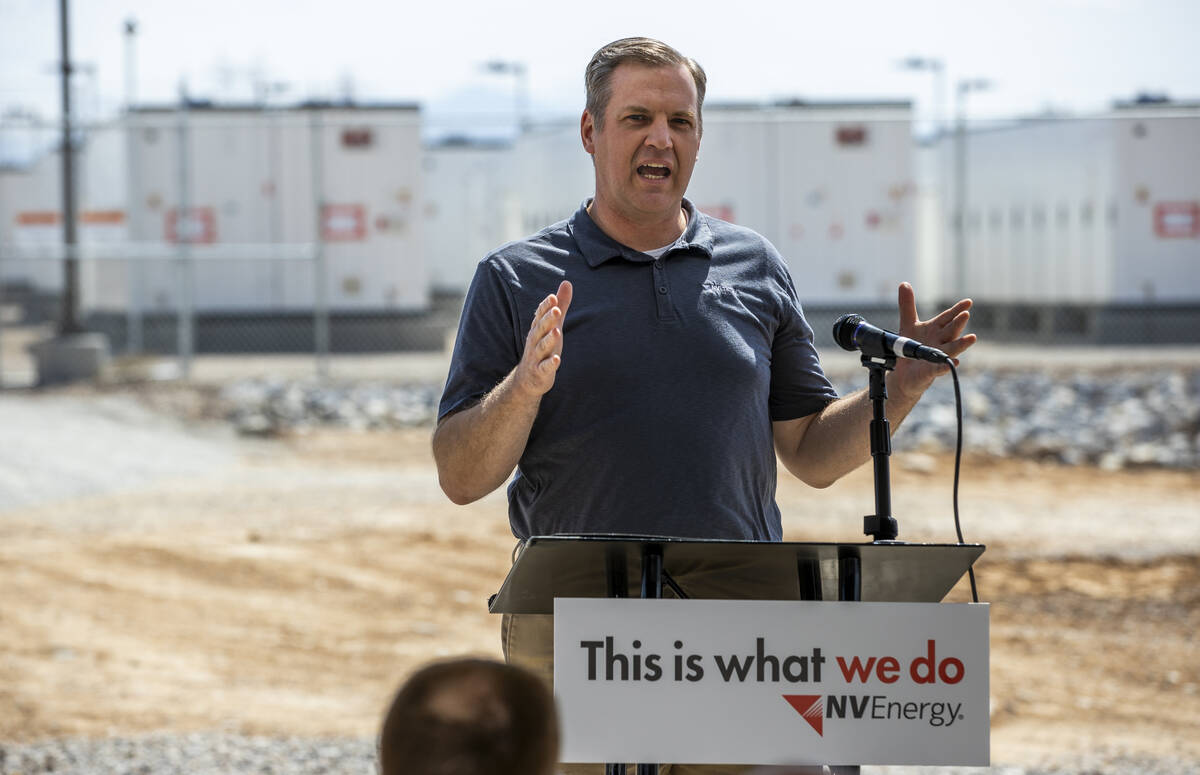Are energy shutoffs common during heat waves? Nevada bill seeks public data

Both extreme heat and frigid winters kill in Nevada. Air conditioning and heat can be Nevadans’ only hope of avoiding heat stroke or hypothermia.
That’s why Olivia Tanager, director of Nevada’s Tioyabe chapter of the Sierra Club, and a committee of the Nevada Legislature want more clarity on when, where and how many state residents are subject to utility shutoffs each month when they fail to pay utility bills.
Instead of a data dump in April that can only be accessed easily through a records request, Senate Bill 442 would require shutoffs to be released quarterly, with numbers divided into months and separated by ZIP code.
“It’s not publicly available or transparent,” Tanager said in a Tuesday interview. “And it isn’t very helpful in us being responsive to the rising number of disconnections because we won’t know what the past year data showed until April of the following year.”
Lawmakers discussed the bill at a Monday Senate Committee of Growth and Infrastructure meeting, with no members of the public in opposition to an amended version of it.
Throughout the country, 26 states have at least some statutory requirement for utilities to report this data, Tanager said in a presentation to lawmakers. In Nevada, it’s only a regulation that obligates the reporting of this data at all, and enshrining the duty in state law will ensure it’s long-lasting, she said.
Knowing where residents are struggling the most can help guide the deployment of federal funds meant to assist low-income Nevadans and even tell arborists what neighborhoods they should plant more trees, several people said during public comment.
Some temperature protections in place
Much of the concern for better data stems from extreme heat affecting low-income Nevadans.
Climate scientists have ranked Reno and Las Vegas as the two fastest-warming cities in the country; heat played a role in the deaths of 527 people last year in Southern Nevada alone.
The Public Utilities Commission of Nevada, which declined to comment on the bill, currently has safeguards in place to prevent utilities from cutting service during extreme weather events.
What’s known as the Consumer’s Bill of Rights mandates that Southern Nevada customers considered disabled or elderly and live in a mobile home cannot have their electric service shut off within 24 hours of a National Weather Service forecast of 100 degrees or higher.
The threshold rises to 103 degrees for disabled or elderly customers who don’t live in a mobile home and 105 degrees for all other customers. Smaller cutoffs exist for Northern Nevada customers, and others apply in both regions for extreme low-temperature forecasts.
Leslie Vega, of the Progressive Leadership Alliance of Nevada, said she has personally seen how energy insecurity has led to medical emergencies in times of extreme heat.
“The absence of this data keeps communities in the dark — literally and figuratively while households across Nevada are forced to make impossible choices between electricity, food and medicine,” Vega told lawmakers, adding that electricity is a public health necessity, not a convenience.
NV Energy, Southwest Gas react
Both NV Energy and Southwest Gas testified at the end of the hearing, expressing a neutral opinion.
Dylan Keith, senior government affairs manager for Southwest Gas, said the company only disconnects about 5 percent of customers who don’t pay their bills. Instead, the company offers customers deferred payment plans, state assistance or help from nonprofit partners.
Customers become candidates for gas shutoffs when bills that total $500 are 60 days past due or when 90 days has passed if they owe less than $500, Keith said.
Similar assistance exists for customers of NV Energy, said Anthony Ruiz, who spoke on behalf of the utility.
The utility uses ZIP code and income data to help better understand where to deploy resources, providing more than $2.8 million the last three years through one of its programs, he said. The utility has proposed a discount for low-income Southern Nevadans, as well, to help keep people’s lights on.
“NV Energy shares the goal of ensuring that our vulnerable customers, Nevadans, have access to the support they need to help keep their energy service connected,” Ruiz said.
Contact Alan Halaly at ahalaly@reviewjournal.com. Follow @AlanHalaly on X.